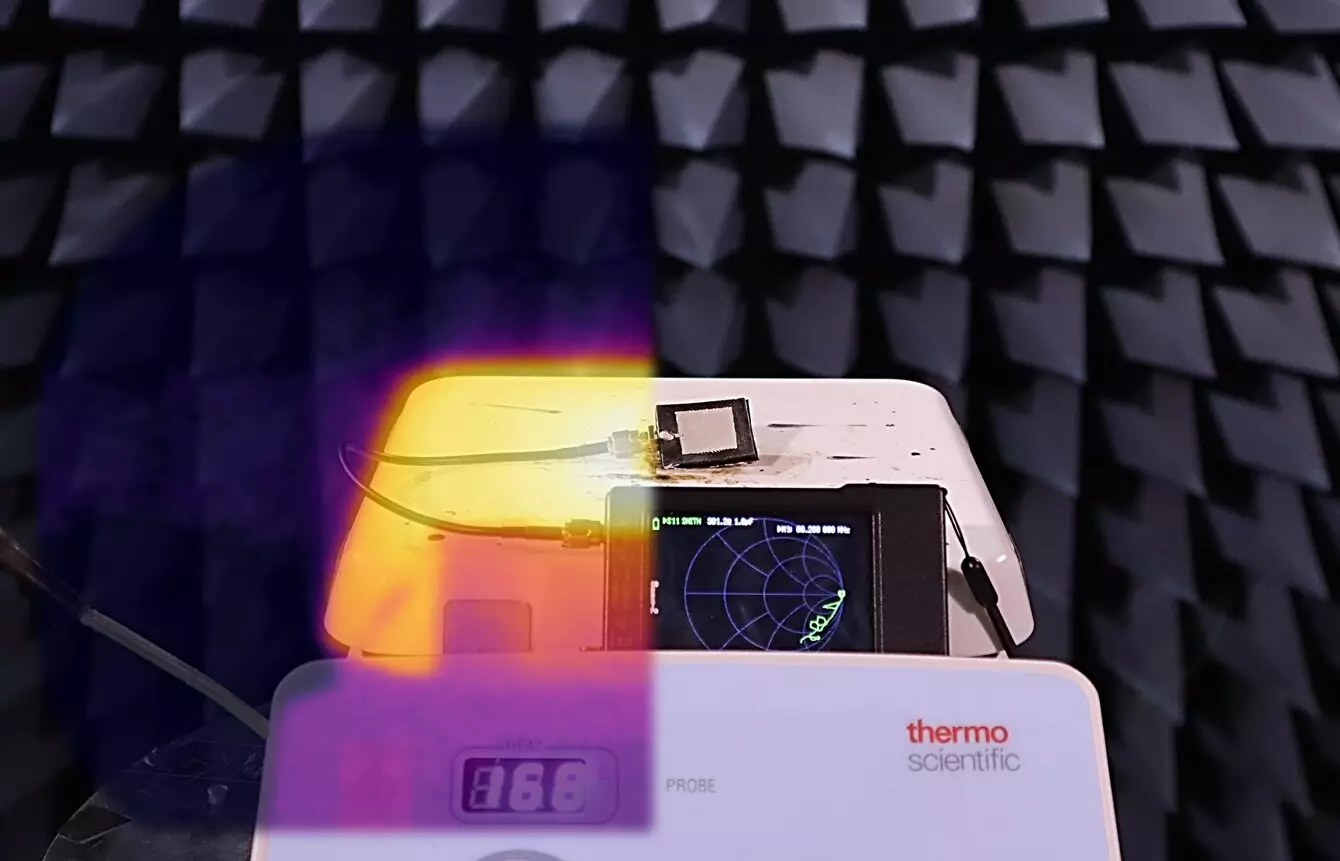Temperature sensors are essential components used in various electronic devices to measure changes in temperature. However, conventional temperature sensors, known as thermistors, have limitations. They can only measure temperatures within narrow ranges, necessitating the use of multiple sensors to cover a wide sensing range. Additionally, these thermistors require battery power and onboard processing, making them less efficient and potentially costly.
Engineers from UK universities have recently developed a groundbreaking method of measuring temperature using a soft and flexible “smart skin” sensor. This sensor, made from a composite of carbon fibers and silicon rubber, eliminates the need for battery power or onboard processing. Instead, it relies on the interaction of electromagnetic waves with the sensor to accurately measure temperature.
The key advantage of this new temperature sensor lies in its ability to absorb and reflect radio-frequency (RF) signals, which vary with atmospheric heat or cold. As a result, the sensor can measure temperatures across a much wider range than traditional thermistors. In fact, it can read temperatures from as low as 30°C to over 200°C, setting a new record in temperature sensing capabilities.
Furthermore, this soft and flexible sensor demonstrates incredible durability. It can endure thousands of cycles of bending and stretching without losing its sensitivity to temperature. This durability opens up opportunities for its integration into various applications, such as bendable electronics and smart fabrics.
The implications of this breakthrough extend beyond temperature measurement alone. The new soft and flexible temperature sensor has significant potential to revolutionize wireless sensor technology. With its wide sensing range, fewer sensors will be needed to cover the same temperature range, making future wireless sensors more accessible and sustainable.
The researchers also highlight the sensor’s compatibility with 5G communications technologies. By functioning up to a frequency of 26 GHz, the material aligns with the spectrum of 5G, enabling its integration into advanced wireless networks. This opens up possibilities for a range of applications, including vital sign monitoring, radar sensing, satellite communications, and even the future development of 6G wireless networks.
The development of this soft and flexible temperature sensor was made possible through collaboration between researchers from multiple universities in the UK. The University of Glasgow led the study, employing a 3D printer to mold the flexible material and integrate it into various components. The University of Southampton played a vital role in developing the stretchable sensor material, while Loughborough University contributed by characterizing its electrical properties.
The success achieved thus far opens doors for further research and innovation in the field of wireless sensing. Dr. Mahmoud Wagih, the lead researcher from the University of Glasgow, aims to explore new applications for sustainable and biodegradable wireless electronics. This project builds on the team’s expertise in cutting-edge RF sensing and will focus on developing functional and natively stretchable materials for body-centric wireless sensing.
The development of the soft and flexible “smart skin” temperature sensor marks a significant milestone in the field of temperature measurement. Its broad sensing range, durability, and compatibility with advanced wireless technologies make it a promising tool for various industries and applications.
As further research and development unfold, the potential for soft and flexible sensors expands beyond temperature sensing alone. These sensors could pave the way for a new era of wireless sensing, enabling advancements in healthcare, communication networks, and countless other fields. With continuous innovation, the future holds endless possibilities for soft and flexible sensors in shaping the way we interact with the analog world.


Leave a Reply